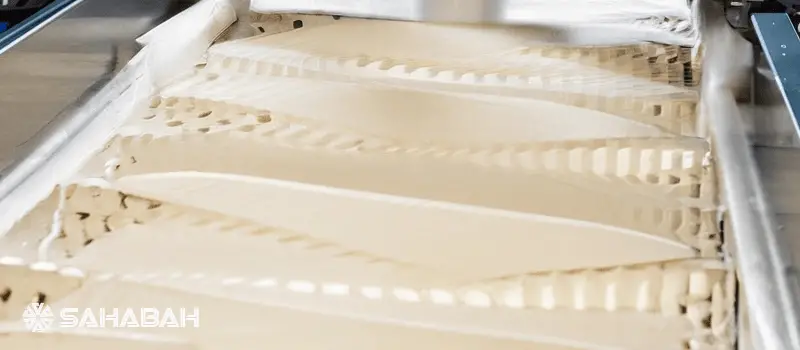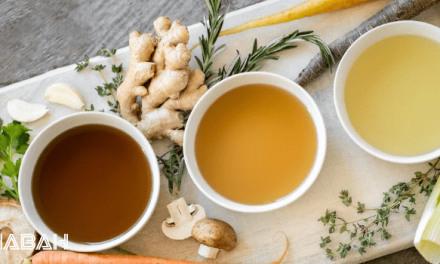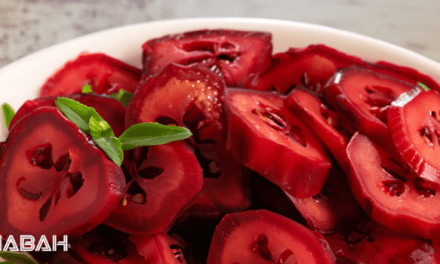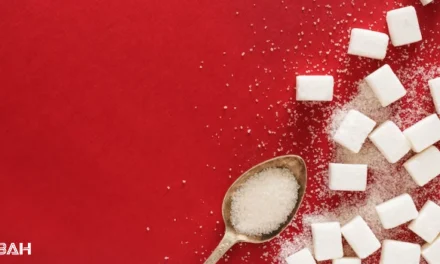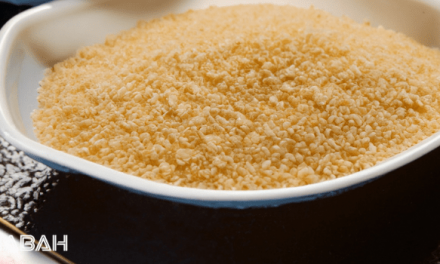Gelatin is a colorless, flavorless food ingredient that has been widely used as a gelling agent, stabilizer, and texturizer in food manufacturing. It is derived from collagen extracted from the bones, skins, and connective tissues of animals. Gelatin is commonly used in foods like desserts, marshmallows, candy, ice cream, and yogurt.
The halal status of gelatin has been debated among Islamic scholars. Halal is an Arabic term meaning permissible or lawful. Haram is the opposite of halal and refers to anything prohibited in Islam. Some of the core principles determining permissibility in Islam are:
- The sources and ingredients used
- The manufacturing process
- Certification by halal authorities
This article will analyze the various perspectives on whether gelatin should be considered halal or haram for Muslim consumers. The main points of contention are:
- Sources of gelatin
- Cattle bones
- Pig skins
- Manufacturing process
- Demineralization
- Hydrolysis
- Transformation of original sources
- Ability to verify halal status
As noted by Islamic scholar Mufti Fahad Ahmed Qureshi:
Its halal status depends on the source from which it has been extracted. If it is extracted from the bones and skins of halal animals, i.e. cattle which has been slaughtered Islamically or from demineralized cattle bones, then it is halal.
This article aims to provide a comprehensive overview of the gelatin debate and outline the evidence and opinions on both sides.
Sources and Manufacturing Process of Gelatin
Gelatin can be derived from two major sources:
- Cattle bones
- Pig skins
As explained by Mufti Fahad Ahmed Qureshi:
If it is extracted from the bones and skins of halal animals, i.e. cattle which has been slaughtered Islamically or from demineralized cattle bones, then it is halal.
The main steps in manufacturing gelatin are:
-
Demineralization involves treating the raw materials with acid solutions to remove minerals and release collagen.
-
Extraction – The collagen is then extracted by hot water and hydrolysis. This breaks the natural bonds between individual collagen strands.
-
Filtration and Sterilization – The extracted gelatin goes through filtration, sterilization and drying processes.
-
Conversion to Gelatin – The final step is converting the processed collagen into gelatin powder through extended heating and treatment under controlled conditions.
As per an overview published in the National Center for Biotechnology Information:
Gelatin is derived by controlled hydrolytic extraction of the collagen present in bones, hides and skin. Acid and alkali pretreatments are used to swell collagen matrix, enabling access to cleaving agents.
This multi-step process aims to extract and isolate the collagen present in the raw materials.
Arguments for Gelatin Being Halal
There are several arguments put forth by Islamic scholars and halal certification organizations that gelatin should be considered halal:
-
Gelatin undergoes a complete transformation from the original source material through hydrolysis and extensive processing.
As stated on IslamQA:
The gelatin that is produced has been completely transformed from its original state, so it is permissible to eat it and it is regarded as pure (taahir).
-
The origins of commercial gelatin are very difficult to trace once it has been processed.
According to Muslim.sg:
It is impossible to trace from which animal the gelatine was derived after it has undergone the process.
-
Gelatin derived from cattle slaughtered in the Islamic method is considered halal. Many producers only use cattle bones and hides for gelatin.
-
Technological advances allow gelatin to be derived from halal slaughtered cattle bones through processes like demineralization.
-
Reputable halal certifiers like JAKIM in Malaysia have declared cattle gelatin to be halal, which adds credence to this view.
So in summary, the transformation argument, difficulty tracing sources, use of halal cattle, and halal certification provide grounds for considering commercially produced gelatin as permissible for Muslims.
Arguments for Gelatin Being Haram
On the other hand, there are also arguments put forth by Islamic scholars for considering gelatin as haram or prohibited:
-
One of the main sources of commercial gelatin is pig skins, which are clearly haram in Islam.
As stated in FIQH Islam:
Gelatin made of pork is haram because that is extracted from a part that is najis and impure.
-
Even when derived from cattle, gelatin contains small amounts of amino acids that are specific to pigs or other prohibited animals.
According to IslamQA:
Analytical studies have proven the presence of pig proteins in gelatin derived from the bones and skin of cattle.
-
The manufacturing process does not completely eliminate or transform all material from the original source. Traces may remain in the final gelatin.
-
When the source is doubtful or unknown, that should be avoided according to Islamic law. As stated in IslamQA:
Whoever examines the matter will find that it is difficult to be certain about the source of gelatin.
So in summary, the use of pig skins, presence of pig proteins, doubt about complete transformation, and uncertain sources provide grounds for considering commercial gelatin to be prohibited according to Islamic jurisprudence.
Meeting Halal Requirements
For gelatin to be conclusively considered halal, certain requirements would need to be met during the manufacturing process:
-
Only hides and bones from halal slaughtered cattle should be used as source materials.
As stated in Muslim.sg:
Muslims are unanimous that gelatine derived from an animal slaughtered according to Islamic rites or from halal fish that are permissible to consume is halal.
-
Thorough cleaning and filtration methods should be used to remove any traces of blood, skin or other connective tissues from cattle bones.
-
The hydrolysis process should break the collagen down into gelatin completely, leaving no traces of the original source.
-
Reputable Islamic certification bodies like JAKIM or the Halal Food Council of Europe should audit and verify the halal status of the entire process.
As noted in Delighted Cooking:
Halal gelatin manufacturers obtain the gelatin from cow hides and cattle bones, not pigs. They use halal certification procedures.
Meeting these requirements can assure Muslim consumers that the strictest halal standards were followed in manufacturing gelatin.
Frequently Asked Questions: Is Gelatin Halal or Haram?
Is Gelatin halal Hanafi?
As mentioned in the post, some Islamic scholars argue that gelatin undergoes complete transformation (istihala) during manufacturing and becomes a different substance from the original source materials. This view is associated with the Hanafi school of Islamic jurisprudence. The article cites sources like IslamQA stating: “The gelatin that is produced has been completely transformed from its original state, so it is permissible to eat it and it is regarded as pure (taahir).”
Regarding medical use, the Hanafi view permits medication containing gelatin, but stricter interpretations would advize avoiding pork-derived gelatin when possible based on the doubt about complete transformation.
How to know if gelatin is halal or haram?
Gelatin can only be conclusively considered halal if it is extracted from halal slaughtered animals like cows, chickens, and fish. As stated previously, cattle must be slaughtered per Islamic procedures for their bones and hides to be permissible sources. Fish do not require specific slaughtering techniques to be halal.
The argument that gelatin derived from cattle bones and skins is halal depends on the prerequisite that proper Islamic slaughter was carried out. According to the scholars cited, if the cattle are not slaughtered in the name of Allah, then the gelatin produced would not satisfy Sharia requirements.
On the other side, mainstream Islamic legal opinions concur that pigs are haram and using their skins or any byproducts for gelatin would be prohibited. Similarly, gelatin made from other impermissible animals like carnivores would not be considered halal even if plants were used in processing.
What are the common sources of gelatin?
Gelatin is commonly sourced from bovine (cattle) and porcine (pork) sources. However, it can also be derived from fish or other permissible animals.
Can gelatin be used in halal food products?
Yes, gelatin can be used in halal food products as long as it is sourced from halal sources and the production process meets halal requirements.
Is gelatin extracted from animals slaughtered according to Islamic law halal?
Yes, if gelatin is extracted from animals slaughtered by Muslims according to Islamic law, it is considered halal.
What is the ruling on gelatin hydrolysis?
According to Islamic Fiqh (jurisprudence), the process of gelatin hydrolysis does not affect its halal status. As long as the gelatin is sourced from halal animals, it remains permissible.
Can gelatin be found in desserts and candies?
Yes, gelatin is commonly used in desserts, candies, gummy bears, marshmallows, and other similar food products.
Are there alternatives to gelatin for Muslims who avoid it?
Yes, there are alternatives available such as agar agar, carrageenan, and pectin that can be used as substitutes for gelatin in various recipes.
Conclusion
In conclusion, strong opinions and evidence are presented on both sides of the gelatin debate. The permissibility of gelatin depends greatly on its source and manufacturing process.
On one hand, major gelatin producers argue it undergoes complete transformation and halal cattle sources are used. Many halal certifiers like JAKIM have approved cattle gelatin as halal.
However, other scholars contend that pig sources are still common, traces remain after processing, and doubtful ingredients should always be avoided.
As noted in Hearthy Foods:
There is a split consensus within the Islamic community on whether gelatin is considered Halal.
For Muslims wanting to exercise precaution, gelatin should be avoided or alternates like plant-based agar-agar or carrageenan can be substituted in food products.
Ultimately, there is a need for more in-depth research and scholarly debate on this issue to reach a definitive consensus on gelatin’s precise halal status within Islamic jurisprudence.

